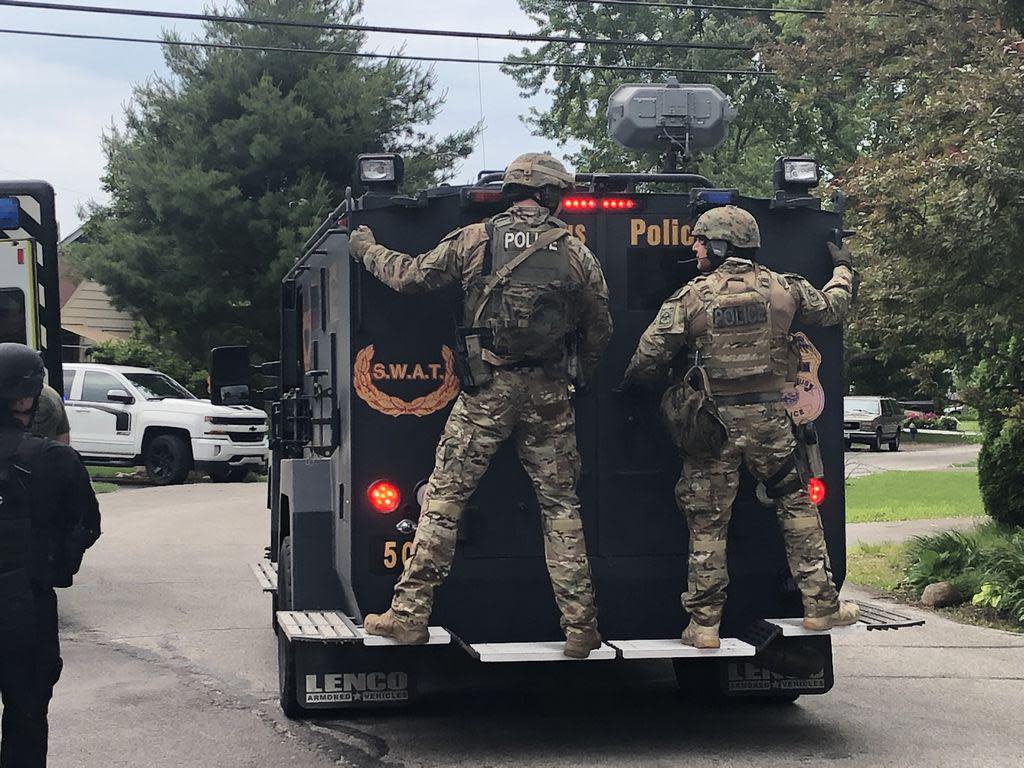As 'swatting' cases grow, Ohio House passes bill making prank emergency calls a felony

Intentionally reporting fake or misleading information to trigger an emergency response from law enforcement is a step closer to becoming a felony after the Ohio House passed a bill Wednesday to crack down on "swatting."
H.B. 462 would make it a third-degree felony to use a phone, computer, radio or any other telecommunications device to knowingly report a fake emergency. A violation that results in serious physical harm would increase to a second-degree felony.
The bill now heads to the Ohio Senate.
"On several occasions throughout the country, officers have forcibly entered the residence of unsuspecting victims with guns drawn and people have been hurt and/or killed during these incidents," said state Rep. Kevin Miller, R-Newark, the bill's sponsor.
The bill outlines a plan for law enforcement agencies and emergency service providers to get reimbursed for the costs incurred during a response to a fake emergency. It requires that once someone has been convicted of swatting, the court must accept itemized cost statements from any government agency involved in the emergency response. The court may then order the offender to partially or fully reimburse the agency.
A third-degree swatting offense could result in a fine of up to $10,000, and a second-degree offense can result in a fine up to $15,000.
"Not only are these incidents extremely dangerous, these incidents also waste a tremendous amount of taxpayer resources," Miller said. "It will serve as a deterrent for those who (are) constantly perpetrating such a reckless hoax."
The court may also order the offender to pay restitution to the victim for an amount related to their economic loss.
The bill also stipulates that an offense that is a violation of both the new swatting law and any existing Ohio law can be prosecuted under the swatting law, the existing law, or both.
What is swatting?
Swatting is a form of online harassment in which someone tricks law enforcement using bogus reports of a hostage situation or another violent crime in progress to send a heavily-armed police paramilitary team — most commonly a SWAT team, hence the term — to a victim's home or business, but also to public institutions, events and large gatherings.
The term "swatting" was used by the Federal Bureau of Investigation as early as 2008. The use of swatting as a harassment tactic started in the world of competitive online video games, but victims of swatting don't exclusively fit that mold. Swatting victims range from celebrities to tech executives and even to lawmakers supporting anti-swatting legislation.
In September, at least eight Ohio schools were targeted in false active shooter reports. At least 30 false reports of school shootings and other threats of violence on school campuses were made across the country during the previous week.
"From the students hiding under their desks … to the teachers trying to shield and keep their children safe, to the unsuspecting parents who get the phone calls and texts from their terrified children, and the first responders that are racing to that danger, mentally preparing for what they expect to be a high likelihood that there will be a shooting," Miller said. "All of them to find out that this was just a hoax."
Swatting as a harassment tactic will be difficult to prevent as long as police strike teams exist with a mission to respond to crises, according to online cybersecurity publication CSO.
As an individual, the best measure you can take against the possibility of a swatting attack is to practice good online identity hygiene techniques, according to CSO. At a minimum, individuals should ensure their home address and phone number aren't easily discoverable though a simple Google search.
Nolan Simmons is a fellow in the E.W. Scripps School of Journalism's Statehouse News Bureau.
Get more political analysis by listening to the Ohio Politics Explained podcast
This article originally appeared on The Columbus Dispatch: Ohio House passes bill making "swatting' prank calls a felony offense

